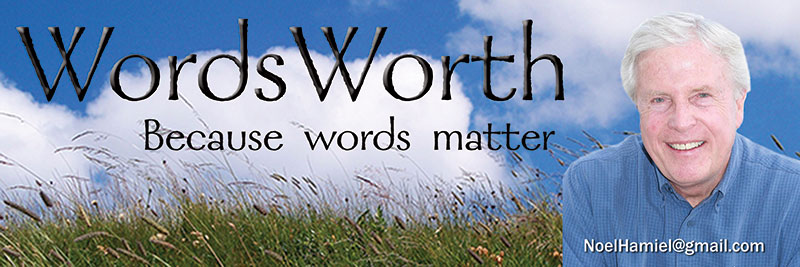Misinformation: “False words are not only evil in themselves, but they infect the soul with evil.” – Socrates
Readers of this column know of my fascination with words.
That’s why the announcement by Dictionary.com that “misinformation” was its word of the year caught my attention.
“The rampant spread of misinformation is really providing new challenges for navigating life,” linguist Jane Solomon said of the selection of the word.
It’s not that misinformation is new, but it is more prevalent.
Words matter, as the recent political campaign demonstrated, and they can be used to build up or tear down; to inspire or degrade; to comfort or annoy. They also can be misused, as when French President Emmanuel Macron recently said that “patriotism is the exact opposite of nationalism. Nationalism is a betrayal of patriotism.”
Nationalism, contrary to Macron’s use of it, is a “devotion to the interests and culture of one’s nation.” That’s from the American Heritage Dictionary and squares with how the word formerly was used.
In today’s world, that is how President Trump uses it, as well. When he says “Make America Great Again,” he’s really saying “Make America No. 1 Again.” In other words, put America first.
This is contrary to those espousing the global view or new world order.
Is it wrong to place your country first? Some would have you think so.
What the word does not mean, as some have contended, is some sort of white supremacy or racism. Nor is it an attack on cultural differences, which are a cornerstone of our nation.
Here’s another definition of nationalism, this one by the Encyclopedia Britannica: “An ideology based on the premise that the individual’s loyalty and devotion to the nation/state surpass other individual or group interests.”
Nationalism means that political, racial and cultural differences should be secondary to national unity. We should cherish and celebrate our various ethnic, religious and philosophical differences. True nationalism respects and recognizes our differences and in doing so makes our nation stronger. However, as important as those differences are, they pale in comparison to the things that unite us: our Constitution and common values of equality, freedom and justice for all.
You can find other definitions of nationalism that place it in a negative light, and these are often used today. However, writer George Will’s perspective is worth considering:
“Nationalism is blamed for this century’s wars, but nationalism need not mean militarism. And the nation-state has been the laboratory of liberty.”
Dec. 5, 2018
